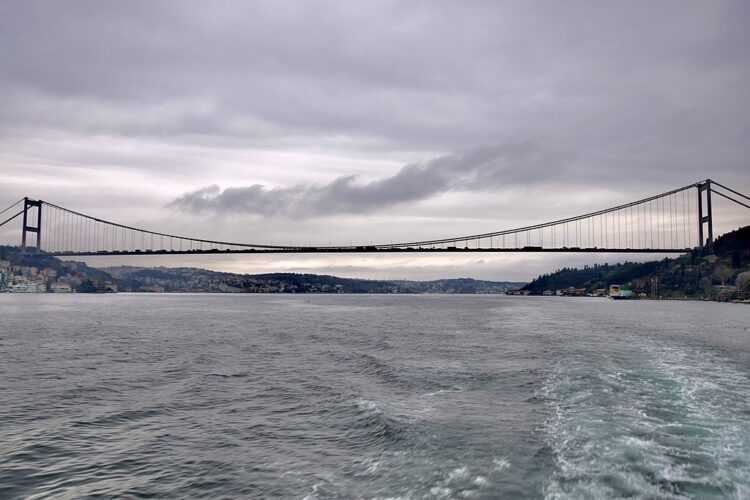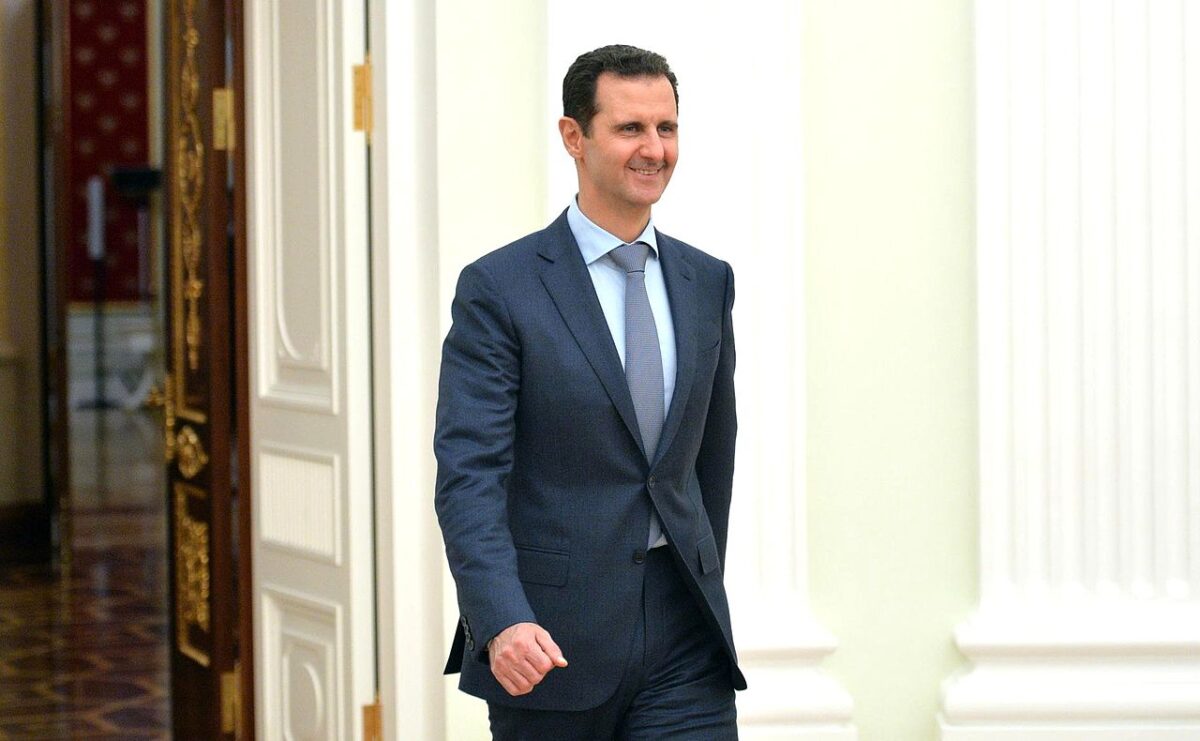With very few exceptions, Middle Eastern Muslim states have generally reacted cautiously to the current war in Ukraine.
Until yesterday, the vast majority of Arab countries, plus Turkey, refrained from either condemning Russia’s invasion or siding with Ukraine, an ally of the United States and the West.
Today, several Arab countries — Egypt, United Arab Emirates, Saudi Arabia, Tunisia, Bahrain, Oman, Lebanon, Libya, Kuwait and Qatar — as well as Turkey voted for a United Nations General Assembly resolution condemning Russia. Morocco was not present. The resolution passed by a margin of 141-5, with 35 abstentions.
As expected, Syria — Russia’s chief Arab ally in the Arab world — voted against it.
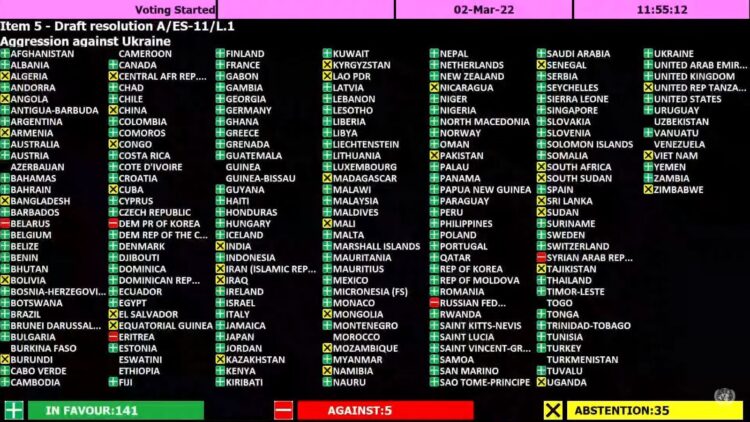
Iraq, Algeria and Sudan abstained.
Iran cast an abstention, too, having urged Russia to “immediately” withdraw from Ukraine.
Before this resolution was tabled, the Arab world, Turkey and Iran had expressed concern about the humanitarian implications of the war and called for a peaceful resolution of the crisis. According to Ukraine, 2,000 civilians have been killed so far.
Efforts by Arab countries and Turkey to strike a fine balance was designed to offend neither Russia nor Ukraine.
Israel adopted the same carefully calibrated policy of neutrality. Today at the United Nations, however, Israel voted with the majority of the 193 member states against Russia.
The caution displayed by Muslim states was understandable.
Several Arab countries, notably Egypt and Iraq, rely on Russian and Ukrainian wheat exports and Russian weapons and munitions.
Turkey has formed particularly close commercial and military ties with Ukraine and Russia.
Iran, which is allied with Russia in support of Syrian President Bashar al-Assad’s regime, tended to lean toward the Russian government position.
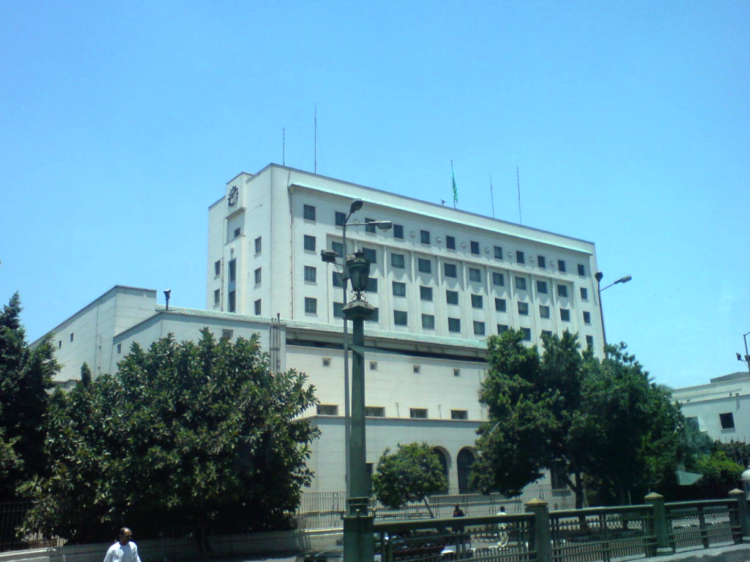
On February 28, four days after Russia invaded Ukraine, the 22-member Arab League on Cairo issued a statement on the Russia-Ukraine war. Pleading for restraint and a calling for a diplomatic solution, the Arab League took note of “the importance of respecting the principles of international law.” This could be seen as an implicit criticism of Russia’s violation of Ukraine’s borders.
Last week, the United Arab Emirates joined China and India in abstaining on a United Nations Security Council resolution demanding an immediate Russian withdrawal from Ukraine.
Lebanon’s Foreign Ministry blasted Russia, condemning “the invasion of Ukrainian territory” and calling for an immediate halt to Russian operations and a “return to dialogue and negotiations as a better means of finding a solution.”
In a message on Twitter, Najla el-Mangoush, the foreign minister of Libya — a nation embroiled in a civil war — denounced Russia’s invasion as “a violation of international law.”
Syria praised Russia’s military intervention in Ukraine. In a telephone call with Russian President Vladimir Putin, Assad said that “Western nations bear responsibility for the chaos and bloodshed” in Ukraine. “President Assad stressed that what is happening today is a correction of history and a restoration of balance in the global order after the fall of the Soviet Union,” a Syrian government communique said.
In a reference to Syria’s ongoing civil war and Russia’s accusation that neo-Nazis are in charge of President Vlodymyr Zelensky’s pro-Western government, Assad accused the West of using “dirty methods to support terrorism in Syria and Nazis in Ukraine.”
Neither the Palestinian Authority, which governs parts of the West Bank, nor Hamas, which controls the Gaza Strip, have condemned Russia. They have remained conspicuously silent as Russian tanks and armored personnel carriers have stormed into Ukrainian cities.
Hamas leader Khaled Mashaal reportedly urged Russia to “halt the invasion … and the killing of civilians.” But Hamas’ leadership denied the “fabricated” comments attributed to him, and issued a statement claiming that the United States’ status as a unipolar superpower had ended.

Hamas maintains cordial ties with Russia. Last year, a Hamas delegation conferred with Russian Deputy Foreign Minister Mikhail Bogdanov in Moscow. Previously, Russia had been involved in efforts to heal the longstanding breach between Hamas and the Palestinian Authority, led by Mahmoud Abbas.
Abbas has met Putin several times in the past few years to convince Russia of the need to convene an international conference on the Arab-Israeli conflict. Like Abbas, Russia endorses a two-state solution to resolve it.
Shortly after the outbreak of the war in Ukraine, Iranian Foreign Minister Hossein Amirabdollahian called for a ceasefire and claimed that the crisis is “rooted in NATO’s provocations.”
Iran’s supreme leader, Ayatollah Khamenei, sounded a similar theme. The root cause of the war, he said, is embedded in the policies of the Western powers. Without mentioning Russia even once, he branded Zelensky’s government as a “puppet state” of the West.
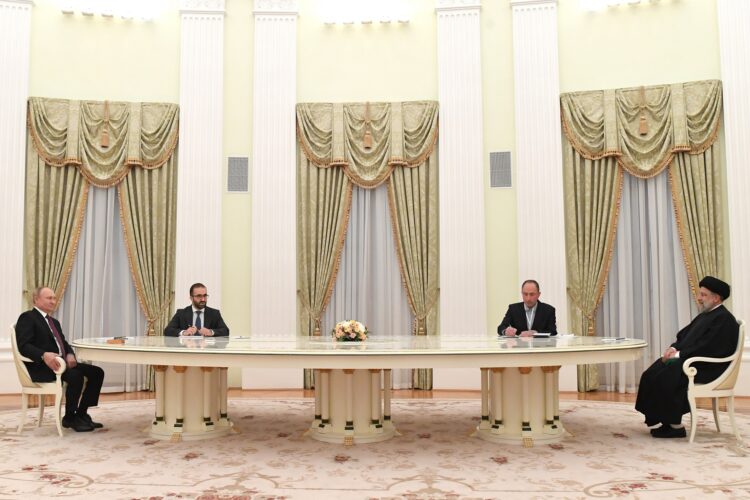
Iran’s bilateral relations with Russia are such that, on his first official trip abroad since his election last June, Iranian President Ebrahim Raisi visited Moscow to meet Putin. His visit took place in January.
Raisi’s predecessor, Hassan Rouhani, visited Russia in 2017, after which Russian Foreign Minister Sergei Lavrov tweeted that Russia and Iran had drafted a framework agreement for a 20-year strategic cooperation agreement. It was intended to replace an accord first signed by President Mohammad Khatami.
Iran and Russia have extensive commercial relations. And in Syria, they have banded together with the Syrian armed forces and Hezbollah to fight against Syrian rebels trying to overthrow Assad’s regime.
Turkey, the only Muslim member of the NATO alliance, had sent mixed signals to Russia.
Turkish President Recep Tayyip Erdogan has sold armed drones to Ukraine and developed cordial ties with Zelensky. At the same time, he has purchased the S-400 missile defence system from Russia, thereby antagonizing the United States and its allies and disqualifying Turkey from buying more F-35 fighter stealth fighter jets from the United States.
Until Turkey’s official condemnation of the Russian invasion, Erdogan called on NATO to adopt a stronger stance against Russia. “No action has been taken,” he said recently in a biting reference to NATO’s policy of military non-interference in the war.
Ukraine’s ambassador in Ankara has asked Turkey to close the Bosporus and Dardanelles straits — the maritime links between the Black Sea and the Mediterranean Sea — to Russian ships. Under the 1936 Montreal Convention, Turkey is responsible for managing traffic through these waters.
In deference to Russia, Turkey has not acceded to Ukraine’s request. But the situation remains fluid and Turkey could well change its policy in the near future.
